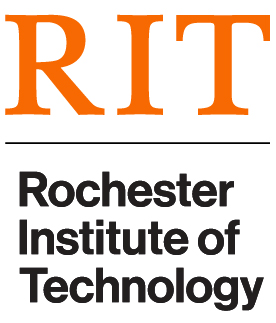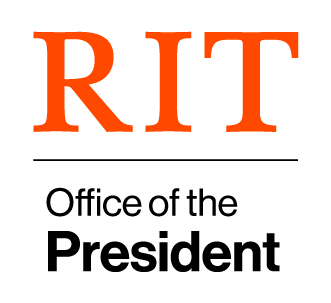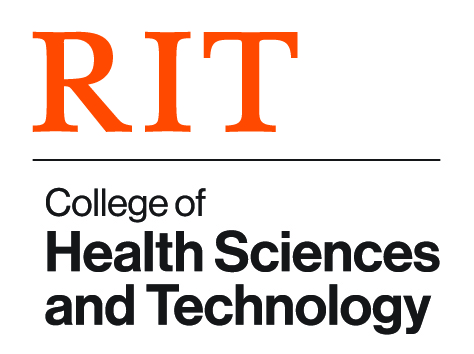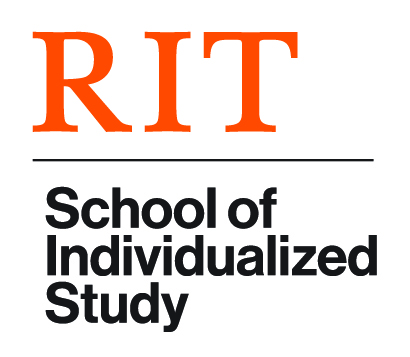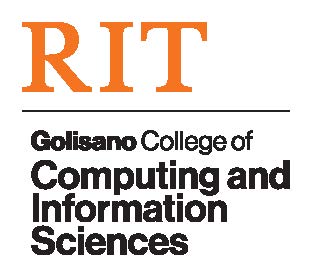2024 National Conference: “Generate | Integrate: Technology, the Arts and Design”
About the Conference
Registration Now Open!
A2ru’s next annual conference will take place November 14-16, 2024 at Rochester Institute of Technology (RIT) in Rochester, NY. This will be an in-person conference.
The conference will take place mainly in the RIT Campus Center (34 Lomb Memorial Drive) and the RIT Student Alumni Union (39 Lomb Memorial Drive). The reception will take place in the SHED (91 Lomb Memorial Drive). No-cost parking passes are available at the Welcome Center at 100 Lomb Memorial Drive. For more information, visit https://www.rit.edu/parking/visitors.
Looking for information on things to do or places to eat while at the conference? Check out the Visit Rochester website for a comprehensive guide.
Technology, in its many evolving forms, has always played a significant role in the arts and design, impacting both process and product. At RIT, this year’s conference host, the university’s T/A\D (Technology/The Arts\Design) initiative positions the intersection of these fields as “the meaningful partnership of diverse ways of thinking, exploring, and making to address complex contemporary problems, advance knowledge, and pursue joy and wonder.” The three major thematic areas of the T/A\D initiative are “Solving humanity’s complex problems,” “Storytelling through enhanced realities,” and “Exploring new grounds in visual communication and imaging.”
As the arts and higher education wrestle with the rapid emergence of Generative AI and immersive technologies, and their potentially seismic impacts on our fields and the ways we teach, conduct research, and engage in creative practice, “Generate | Integrate: Technology, the Arts & Design”invites us to take a more historicized, holistic, and complex look at the interrelationships among these disciplines in order to chart our collective way forward.
The a2ru national conference is an opportunity for practitioners and researchers from across higher education to share innovations and perspectives in the arts. a2ru advances the full range of arts- and design-integrative research, curricula, programs, and creative practice to acknowledge, articulate, and expand the vital role of higher education in our global society. a2ru’s work, in partnership with an international network of leading higher education institutions, allies, and partners, envisions a world in which universities—students, faculty, and leaders—explore, embed, and integrate the arts in everyday practice and research.
Featured Speakers


Kelly Hurlburt is a Sr. Staff Designer at Adobe, where she is shaping the future of creativity and AI. She was the lead designer for the launch of Adobe Firefly, the first generative AI model to be trained on only licensed and public domain content. In 2023, she had the honor of introducing Adobe Firefly to the world stage at the Adobe MAX conference. Since the launch, Kelly has concentrated on AI research and incubation projects while continuing to push for the responsible deployment of AI. Kelly holds a BFA in New Media Design from the Rochester Institute of Technology.


Registration
Note: Membership rates apply to both individual members and those who are affiliated faculty, students, and/or staff at a2ru institutional and departmental members.
Regular registration rates apply through October 15; late registration rates will take effect October 16.
Registration Rates
Indvidual Member: $549
Student Member: $399
Independent/Contingent Member: $279
Individual Non-Member: $619
Student Non-Member: $469
Independent/Contingent Non-Member: $329
Purchase In-Person Registration
a2ru Conference Registration Policies
Categories
Member
Members include the students, staff, faculty, and administration who are currently enrolled and/or employed at our member institutions or anyone who has purchased an individual membership.
Students
Students currently enrolled in an associate’s or higher program at any educational institution. If the student has received their PhD, they must currently be enrolled in a post-doctoral program at an educational institution. Part-time students are eligible.
Contingent/Independent
Contingent faculty, independent artists, performers, and scholars. Staff with no institutional support as well as retired/emeritus faculty are also eligible for this category.
Individual
Everyone else!
Refunds
Registrations are non-refundable.
Please choose your category carefully when registering. Partial refunds will not be given if you choose the wrong category (non-member if you are a member, etc.).
In the event that a2ru must cancel the conference in its entirety due to circumstances beyond the control of a2ru or venues hosting the event, a2ru may refund the appropriate registration fees to conference registrants. Cancellation of the event in its entirety would only occur for reasons including but not limited to, forces of nature and natural disasters, war, government regulations, sequestration, travel advisories, outbreaks of disease, acts of terrorism or threat of terrorism, disaster, strikes, civil disorder, curtailment of transportation facilities, or other emergencies that make it inadvisable by local, state or federal government officials, illegal or impossible to provide the facilities or to hold the event. Refund requests after the event due to a no-show will be denied.
Under no circumstances will refunds be made for travel expenses related to the conference. Attendees who purchase non-refundable airline tickets do so at their own risk.
Please check with hotels and transportation directly regarding their cancellation policy. Requests to cancel must be made directly with the hotel or transportation company.
Transfers
To an Individual
A one-time transfer of a paid registration (within the same membership category) can be made before October 1. A $30 administrative transfer fee will be assessed. No transfers will be made on or after October 1, 2024. If the original registrant requested or if the new registrant requires accommodations for dietary restrictions or disabilities, please note this in the request. While we will do our best, certain accommodations may not be able to be made for requests conveyed after September 1, 2024.
All transfer requests must be submitted in writing via e-mail to the a2ru Conference Director Charisse Willis at a2ruconnect@umich.edu.
Sponsorship Opportunities
Want to support a2ru while getting the word out about your program, business, or organization? Consider a 2024 conference sponsorship! Our packages start at just $300 and feature a wide range of benefits, including signage at the conference, social media posts, spotlights in the program, and discounted registration to the conference.
Please contact us at a2ruconnect@umich.edu to ask questions or purchase a package.
Travel and Lodging
The closest airport to RIT is Frederick Douglass Greater Rochester International Airport.(ROC).
For accommodations during the conference, please see RIT’s list of recommended hotels.

